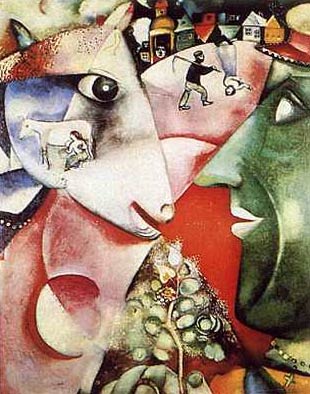
Wisdom to Improve Our World™

Marc Chagall - I and the Village (1911)
Urgent Announcement to "We the People":
A matter of national emergency, which every American & world citizen must investigate immediately. This is a call to action...please find more information at: investigate911.org
Georgetown University Professor & President Clinton's academic mentor, Dr. Carroll Quigley, says that powerful investment bankers have planned "a world system of financial control in private hands able to dominate the political system of each country and the economy of the world as a whole." (source)
Renowned historian, Dr. Carroll Quigley writes that after world war one, the "powers of financial capitalism had another far-reaching aim, nothing less than to create a world system of financial control in private hands able to dominate the political system of each country and the economy of the world as a whole. This system was to be controlled in a feudalist fashion by the central banks of the world acting in concert, by secret agreements arrived at in frequent private meetings and conferences. The apex of the system was to be the Bank for International Settlements in Basle, Switzerland, a private bank owned and controlled by the world's central banks which were themselves private corporations. Each central bank, in the hands of men like Montagu Norman of the Bank of England, Benjamin Strong of the New York Federal Reserve Bank, Charles Rist of the Bank of France, and Hjalmar Schacht of the Reichsbank, sought to dominate its government by its ability to control Treasury loans, to manipulate foreign exchanges, to influence the level of economic activity in the country, and to influence cooperative politicians by subsequent economic rewards in the business world. ... The argument that the two parties should represent opposed ideals and policies, one, perhaps, of the Right and the other of the Left, is a foolish idea acceptable only to doctrinaire and academic thinkers. Instead, the two parties should be almost identical, so that the American people can "throw the rascals out" at any election without leading to any profound or extensive shifts in policy." --Dr. Carroll Quigley, Tragedy & Hope: A History of the World in Our Time, mentor to U.S. President Bill Clinton, renowned Historian, Professor of History at Georgetown University, consultant to the U.S. Department of Defense, the U.S. Navy, and the Select House Committee on Astronautics and Space Exploration, which went on to establish NASA. During his presidential acceptance speech at the 1992 Democratic National Convention, future U.S. President Bill Clinton named Dr. Quigley as an important influence.
"In short, the "house of world order" will have to be built from the bottom up rather than from the top down. It will look like a great "booming, buzzing confusion," to use William James' famous description of reality, but an end run around national sovereignty, eroding it piece by piece, will accomplish much more than the old-fashioned frontal assault. Of course, for political as well as administrative reasons, some of these specialized arrangements should be brought into an appropriate relationship with the central institutions of the U.N. system, but the main thing is that the essential functions be performed." --Richard N. Gardner, The Hard Road to World Order, Foreign Affairs (Journal of the Council on Foreign Relations - CFR), page 558, Volume 52, Number 3, April 1974. Member of the Trilateral Commission, Senior Adviser to the United States Ambassador to the United Nations (U.N.)
Please find more information regarding the criminal agenda to implement Authoritarian World Governance at: investigate911.org
syn·er·gy [sĭnʹər-jē] (plural syn·er·gies) noun Also called synergism
1. combined effort being greater than parts: the working together of two or more things, people, or organizations, especially when the result is greater than the sum of their individual effects or capabilities
2. cooperative interaction among groups: especially among the acquired subsidiaries or merged parts of a corporation, that creates an enhanced combined effect.
[Mid-17th century. Via Latin from Greek sunergia , from sunergein "to work together," from, ultimately, ergos "work."]
syn·er·get·ic [sìnn
r jéttik] adjective
syn·er·get·i·cal·ly [sìnn
r jéttik
lee] adverb
syn·er·gic [si núrjik] adjective
Encarta® World English Dictionary [North American Edition] © & (P) 2001 Microsoft Corporation. All rights reserved."One of the secrets of life is to make stepping-stones out of stumbling blocks." --Jack Penn
"Experience is a hard teacher because she gives the test first, the lesson afterward." --Vernon Law
"To live only for some future goal is shallow. It's the sides of the mountain that sustain life, not the top." --Robert M. Pirsig
"Character' is doing the right thing when nobody's looking." --J.C. Watts
"Without the rich heart, wealth is an ugly beggar." --Ralph Waldo Emerson
“A good friend is someone who knows the song in your heart and sings it back to you when you have forgotten the words.” --Anonymous
© 2000 - 2011 AllForTheGreaterGood.com - All Rights Reserved - Privacy Policy - About Us